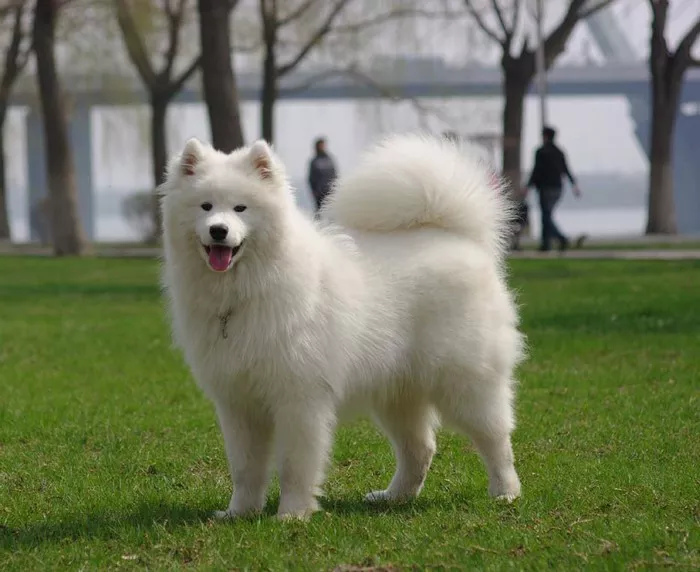Japanese Spitzes are a popular breed of dog known for their fluffy white coats and playful personalities. As with any breed of dog, it is important to maintain a healthy weight to ensure their overall health and well-being. In this article, we will explore how much a Japanese Spitz should weigh, including factors that can influence their weight and tips for maintaining a healthy weight.
The Ideal Weight for Japanese Spitzes
The ideal weight for a Japanese Spitz varies depending on their age, sex, and overall body composition. According to the American Kennel Club (AKC), adult Japanese Spitzes should weigh between 11 and 20 pounds (5 to 9 kilograms), with females generally weighing less than males. However, it is important to note that this is just a general guideline and that the ideal weight for a Japanese Spitz can vary depending on their individual circumstances.
Factors that Can Influence a Japanese Spitz’s Weight
There are several factors that can influence a Japanese Spitz’s weight, including their age, sex, activity level, and diet. Puppies require a diet that is higher in calories to support their growth and development, while adult dogs require a diet that is lower in calories to prevent weight gain. Female Japanese Spitzes may weigh less than males due to their smaller size, while highly active Japanese Spitzes may require more calories to support their energy needs.
In addition to these factors, certain medical conditions can also influence a Japanese Spitz’s weight. For example, hypothyroidism, a condition in which the thyroid gland does not produce enough hormones, can cause weight gain in dogs. Other medical conditions, such as diabetes and Cushing’s disease, can also cause weight gain in dogs.
Tips for Maintaining a Healthy Weight for Japanese Spitzes
Maintaining a healthy weight is important for Japanese Spitzes to ensure their overall health and well-being. Here are some tips for maintaining a healthy weight for Japanese Spitzes:
Feed a balanced diet: Feeding a balanced diet that is appropriate for your Japanese Spitz’s age, sex, and activity level is important for maintaining a healthy weight. Choose a high-quality dog food that is made with wholesome, natural ingredients and avoid dog foods that contain by-products, fillers, or artificial preservatives.
Measure food portions: Measuring your Japanese Spitz’s food portions can help ensure that they are not overeating. Use a measuring cup to measure out their food portions according to the guidelines on the dog food package.
Limit treats: Treats should be given in moderation and should not make up a large portion of your Japanese Spitz’s diet. Choose healthy, low-calorie treats and limit the number of treats your Japanese Spitz receives each day.
Provide regular exercise: Regular exercise is important for maintaining a healthy weight and preventing obesity-related health issues. Take your Japanese Spitz for daily walks or runs and provide opportunities for play and exercise.
Monitor weight: Regularly monitoring your Japanese Spitz’s weight can help you identify any changes in their weight and take appropriate action if necessary. Weigh your Japanese Spitz regularly and consult with your veterinarian if you notice any significant changes in their weight.
The Dangers of Obesity in Japanese Spitzes
Obesity is a common problem in dogs, including Japanese Spitzes. Obesity can lead to a variety of health problems, including:
Joint problems: Excess weight can put strain on a dog’s joints, leading to joint problems such as arthritis.
Diabetes: Obesity can increase a dog’s risk of developing diabetes, a condition in which the body is unable to regulate blood sugar levels.
Heart disease: Obesity can increase a dog’s risk of developing heart disease, including high blood pressure and heart failure.
Respiratory problems: Excess weight can make it difficult for a dog to breathe, leading to respiratory problems such as asthma.
Reduced lifespan: Obesity can reduce a dog’s lifespan, with overweight dogs living an average of 1.8 years less than dogs at a healthy weight.
Preventing Obesity in Japanese Spitzes
Preventing obesity is important for ensuring the overall health and well-being of Japanese Spitzes. Here are some tips for preventing obesity in Japanese Spitzes:
Feed a balanced diet: Feeding a balanced diet that is appropriate for your Japanese Spitz’s age, sex, and activity level is important for preventing obesity. Choose a high-quality dog food that is made with wholesome, natural ingredients and avoid dog foods that contain by-products, fillers, or artificial preservatives.
Measure food portions: Measuring your Japanese Spitz’s food portions can help ensure that they are not overeating. Use a measuring cup to measure out their food portions according to the guidelines on the dog food package.
Limit treats: Treats should be given in moderation and should not make up a large portion of your Japanese Spitz’s diet. Choose healthy, low-calorie treats and limit the number of treats your Japanese Spitz receives each day.
Provide regular exercise: Regular exercise is important for preventing obesity and maintaining a healthy weight. Take your Japanese Spitz for daily walks or runs and provide opportunities for play and exercise.
Monitor weight: Regularly monitoring your Japanese Spitz’s weight can help you identify any changes in their weight and take appropriate action if necessary. Weigh your Japanese Spitz regularly and consult with your veterinarian if you notice any significant changes in their weight.
Conclusion
In conclusion, maintaining a healthy weight is important for Japanese Spitzes to ensure their overall health and well-being. The ideal weight for a Japanese Spitz varies depending on their age, sex, and overall body composition, with adult Japanese Spitzes generally weighing between 11 and 20 pounds. Factors that can influence a Japanese Spitz’s weight include their age, sex, activity level, and diet, as well as certain medical conditions. To maintain a healthy weight for your Japanese Spitz, it is important to feed a balanced diet, measure food portions, limit treats, provide regular exercise, and monitor their weight regularly. By following these tips, you can help ensure that your Japanese Spitz lives a long, healthy, and happy life.


